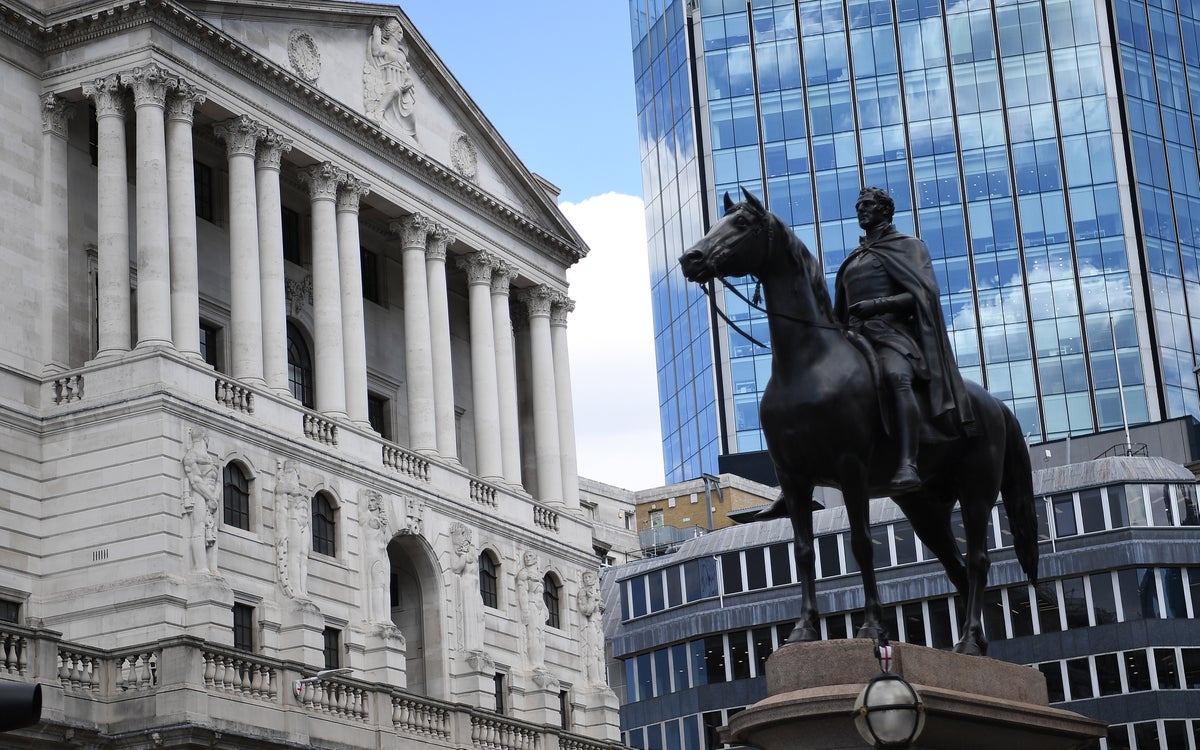
UK interest rates rose to 1.75 per cent at the start of August in a bid by the Bank of England (BoE) to temper double-digit inflation.
The base rate of inflation was already at its highest level for 13 years even before the decision was taken by the institution’s Monetary Policy Committee.
On Wednesday, the Office for National Statistics revealed that the rate of Consumer Prices Index (CPI) inflation fell to 9.9 per cent in August, down from 10 per cent in July.
Although experts predicted that the figure would remain unchanged in August, downward pressure was put on the inflation rate by the falling price of fuel.
On 22 September, the BoE will release its latest decision on interest rates.
Last month, governor Andrew Bailey warned that the BoE must walk a “very tight line” between cooling inflation and triggering a recession.
Here is a quick easy guide to how the new interest rate change next week will affect you.
What are interest rates?
An interest rate is a measure that tells you how high the cost of borrowing money is, or how high the rewards of saving are.
If you are borrowing money, typically from a bank, the interest rate on that money is the amount you will be charged for borrowing it.
It is a charge on top of the total amount of the loan and will be shown as a percentage of the overall.
Cost of living: How to get help
The cost of living crisis has touched every corner of the UK, pushing families to the brink with rising food and fuel prices.
- The Independent has asked experts to explain small ways you can stretch your money, including managing debt and obtaining items for free.
- If you need to access a food bank, find your local council’s website using gov.uk and then use the local authority’s site to locate your nearest centre. The Trussell Trust, which runs many food banks, has a similar tool.
- Citizens Advice provides free help to people in need. The organisation can help you find grants or benefits, or advise on rent, debt and budgeting.
- If you are experiencing feelings of distress and isolation, or are struggling to cope, The Samaritans offers support; you can speak to someone for free over the phone, in confidence, on 116 123 (UK and ROI), email jo@samaritans.org, or visit the Samaritans website to find details of your nearest branch.
Higher percentages mean paying more money to the lender for borrowing the money.
If you are saving money in a bank account, the interest rate on that money is the amount you will accrue on top of your savings. Banks will pay you a percentage of your total savings, typically at the end of the year.
How do interest rates affect inflation?
Low interest rates are used to discourage people from piling up their money in savings. High interest rates encourage saving because people get a better return for the money you are putting away.
This in turn has an affect on the price of goods.
When interest rates are low, people might spend more and this might cause retailers to put up the price of goods.
When interest rates are high, demand might fall as people put more money into their saving pots. This, in theory, should drive down the prices of good and services.
However, rising prices are not a direct result of interest rate changes. Other things, including the supply of money and underlying costs, affect prices and cause inflation.
Interest rates can only help manage inflation.
How do interest rates affect mortgage rates?
Changes in the BoE’s base rate, which is the interest rate at which banks borrow from the Bank, has a knock-on effect on the interest rates that the high street banks then set their mortgage borrowers.
How does this affect me?
The changes in interest rates will affect anyone with savings and anyone who is borrowing money from the banks, for example in a mortgage.
It will also have a wider effect on the economy. By raising the base interest rate, the BoE is hoping to temper soaring inflation and help with the cost of living crisis.







